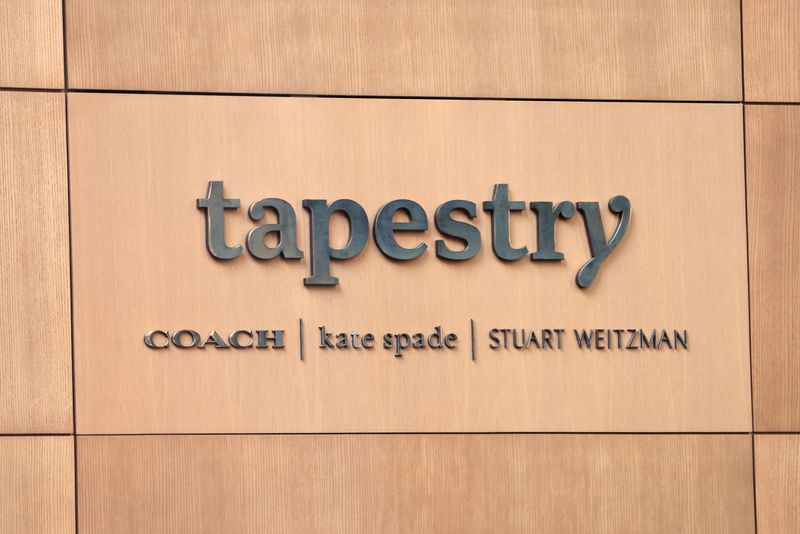(Reuters) -Tapestry, which is buying rival Capri, will lean on higher prices for its handbags and shoes to protect margins as the company lowered its annual sales forecast on Thursday due to tepid demand in North America and China.
Shares of the Coach parent closed up about 3% at $28.28, as its first-quarter profit beat market expectations. They have lost nearly 26% of their value this year.
Tapestry (NYSE:TPR)'s gross margin rose 250 basis points due to higher full-price selling of its high-margin totes and boots coupled with reduced promotions and easing freight costs.
"We see continued runway for pricing improvements given innovation, pipeline and brand heat," CEO Joanne Crevoiserat said on a post-earnings call.
Sales at Coach, Tapestry's biggest brand, grew 3%, as demand for its Tabby shoulder bags nearly doubled from last year.
Tapestry, however, said it expects 2024 revenue of about $6.7 billion, lower than its prior target of nearly $6.9 billion, weighed by a stronger dollar.
"Across channels the aspirational consumer is under more pressure on a relative basis. They're being more choiceful," Crevoiserat said.
Growth in North America is expected to be flat in 2024, owing to a "difficult consumer demand environment", while it expects sales in China to be volatile.
Tapestry said it was on track to close the Capri deal next year, following the U.S. Federal Trade Commission's requests for more information on their planned $8.5 billion deal.
Jimmy Choo-parent Capri's second-quarter revenue of $1.29 missed market expectations of $1.34 billion, according to LSEG data, as the company grapples with weak consumer demand in the United States. Capri's shares fell about 2.3% to $47.10 after the bell.

Tapestry's net sales were flat at $1.51 billion in the quarter ended Sept. 30 from last year. Analysts on average had expected $1.54 billion.
Adjusted earnings per share of 93 cents exceeded estimates of 90 cents.